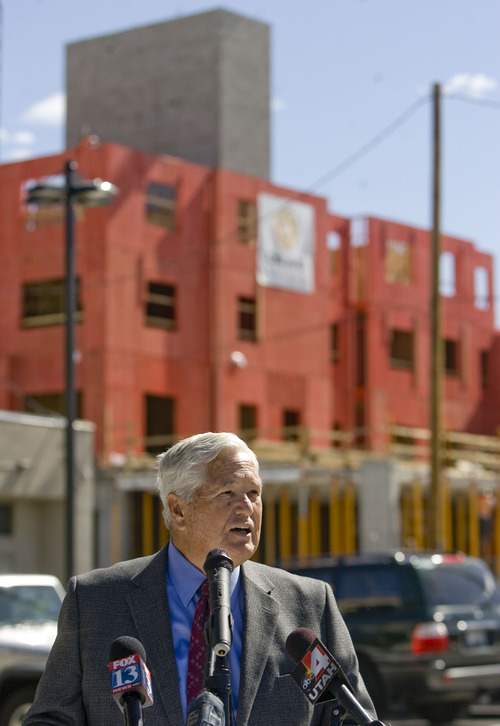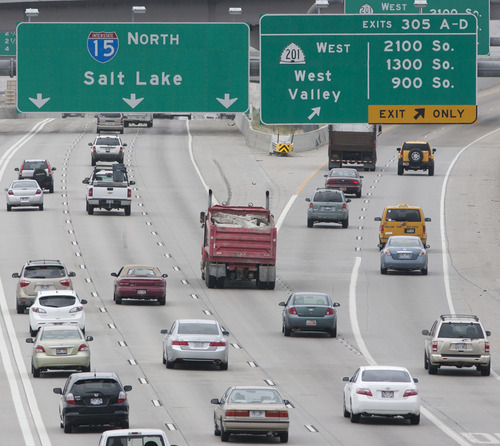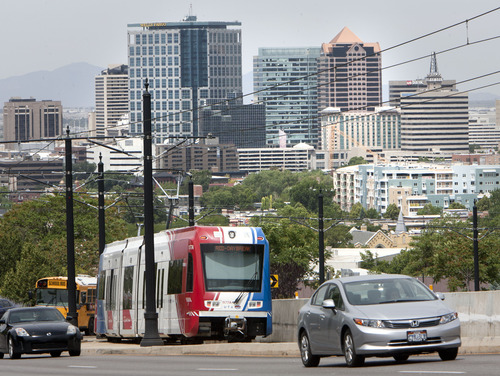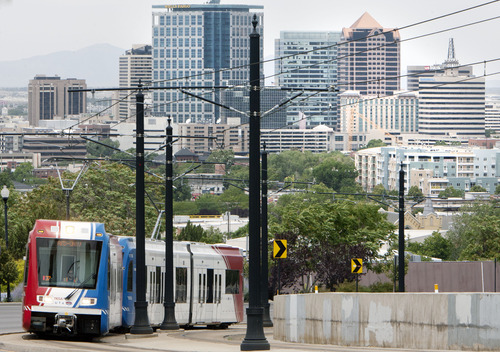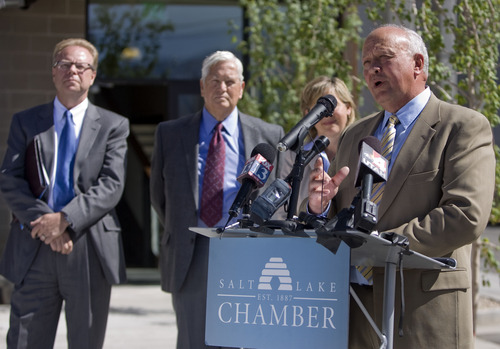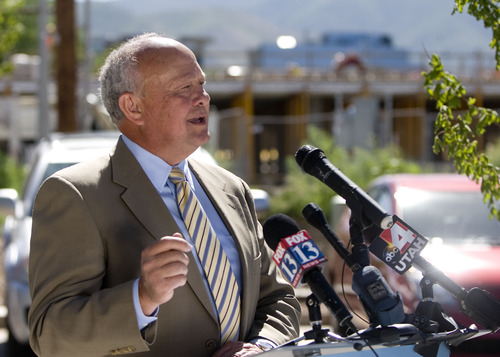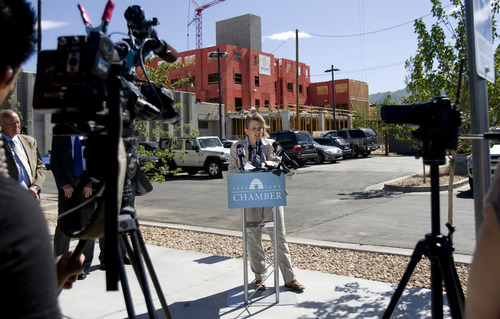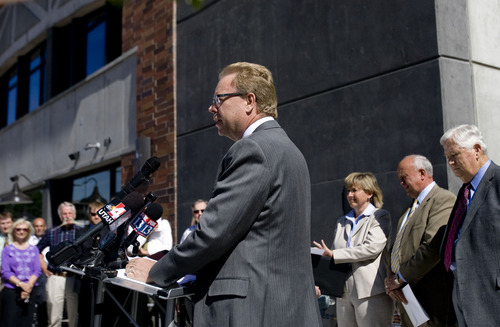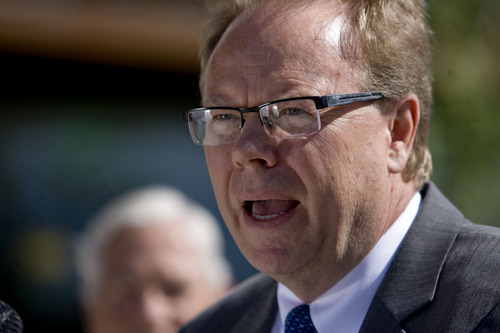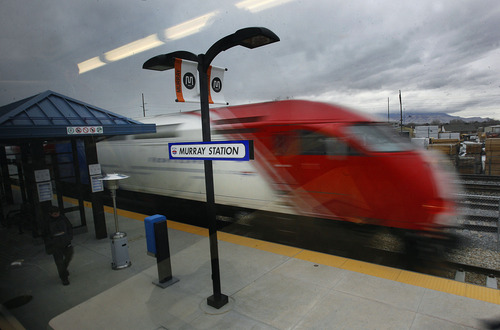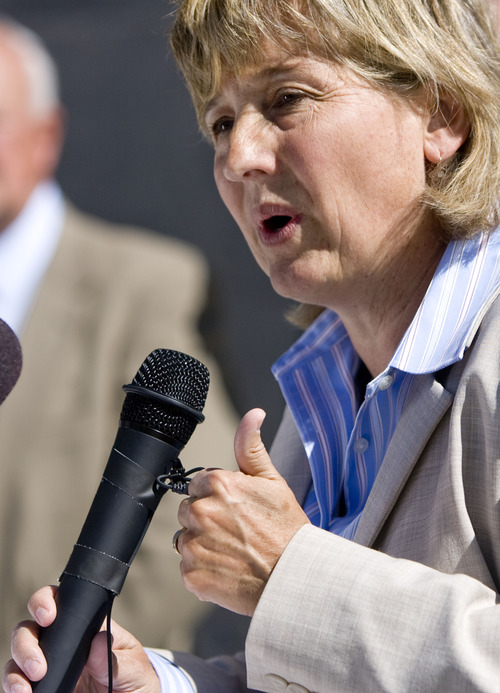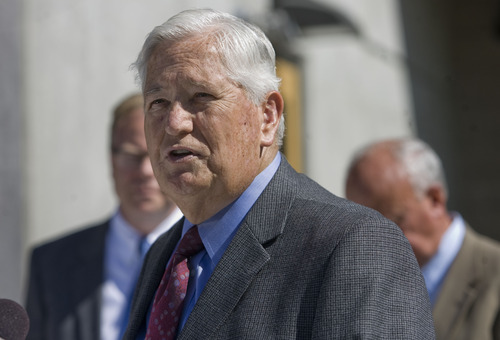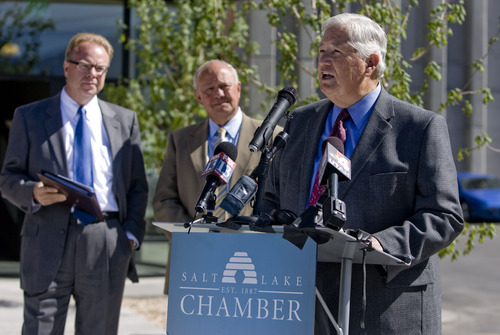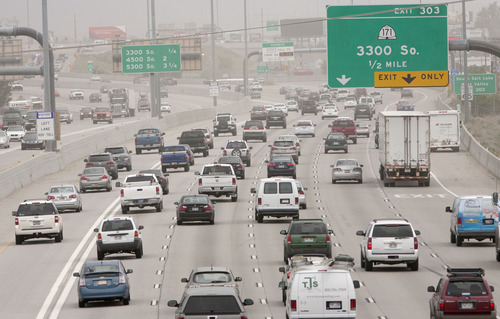This is an archived article that was published on sltrib.com in 2013, and information in the article may be outdated. It is provided only for personal research purposes and may not be reprinted.
If Utah would raise taxes to invest an extra $11.3 billion on high-priority road and mass-transit projects during the next 30 years, its return would be worth many times that amount — including more than $20 billion in extra tax revenue from economic growth and creation of about 6,000 new jobs a year, a new study says.
That shows "It's critical that we continue to invest in our roads, our highways, our mass transit," said H. David Burton, the former LDS Church presiding bishop who is co-chairman of the Salt Lake Chamber's new Utah Transportation Coalition. It sponsored the study by the Economic Development Research Group of Boston.
The findings were unveiled Monday at a news conference held amid the bustle of $400 million worth of ongoing construction in Sugar House that Salt Lake City says was attracted largely by the new Sugar House streetcar line scheduled for completion in December.
"A look at the development going on around us speaks volumes about why we are here," and how transportation improvements can spur economic growth, said chamber President Lane Beattie.
The chamber seeks to build the political will to erase a funding shortfall identified by other recent studies.
The state's Unified Transportation Plan recently listed what it identified as $54.7 billion in critical road and mass transit projects through 2040. A later study by the Utah Foundation said current taxes would fund only $43.4 billion of the total, leaving a shortfall of $11.3 billion.
The state's total budget next year is about $13 billion.
—
Benefits • The chamber's new study looks at the potential benefits of eliminating that shortfall. It predicts benefits over 30 years that would include:
• Creating about 182,000 total new jobs, or 6,000 a year. It says construction would create 55,000. More than 91,000 would be "created by private savings on congestion, safety, wear and tear" on roads. About 17,000 would come from "enhanced access to markets for Utah firms," and 19,000 from "new businesses attracted to Utah because of improved transportation."
• $22. 2 billion in state and local tax revenues from economic growth.
• $130.5 billion in additional household income.
• $183.6 billion in additional state gross domestic product.
• For every $1 invested in transportation, the state would receive a $1.94 return on investment — defined by spurring $106.5 billion growth in gross domestic product from a $54.7 billion investment in transportation.
Natalie Gochnour, chief economist for the chamber, said the analysis was a "very serious economic study" that uses models to measure differences to the economy over time based on which projects are built. The result, she said, shows transportation improvement creates "an important contribution to our economic health." The study comes as the Legislature's Transportation Interim Committee is studying whether tax increases are needed, and what form they may take.
—
Gas tax • The state gasoline tax has not been raised since 1997, when it was hiked from 19 cents to 24.5 cents a gallon. Statewide mayors said in a hearing last week that tax is now equivalent to about 15 cents in 1997 because of inflation, while road maintenance and construction costs have increased 300 percent during that time.
"The one thing that hasn't gone up is support for our infrastructure. That's silly," said Beattie, who was president of the Utah Senate when the gasoline tax was last raised. His Salt Lake Chamber — along with cities and counties — is pushing for an increase in the gas tax now, and to index it to match future inflation.
Legislators are also looking at a possible new tax based on miles driven. That's because gas tax revenues have shrunk in part because new cars are more fuel efficient and vehicles that use alternative fuels either totally escape highway taxes (such as electric cars) or pay less (such as natural-gas vehicles that pay just 8.5 cents a gallon).
"In terms of current dollars, we're investing far less in our infrastructure today than anytime in our recent history," Burton said, referring to such factors. "Something's got to be done."
Beattie said it may also be wise to increase to a full penny the two-thirds cent sales tax (per $1 purchase) in Salt Lake County now going toward mass transit. He said that would match what's levied in many other large metro areas, and it would fund mass transit needed to handle an expected 65 percent population spurt over the next 30 years.
Some lawmakers have warned that any tax hike could face difficulty in a still-fragile economy.
"I am very sensitive to taxes. I love to avoid them at all costs if I could," Rep. Jacob Anderegg, R-Lehi, told mayors last week who testified in favor of raising gasoline taxes.
Anderegg noted that Salt Lake City Mayor Ralph Becker recently vetoed a 13 percent city tax hike largely for roads — later overriden by the City Council — arguing it was too big of a hit at one time. Anderegg argued that statewide transportation tax hikes may face the same problem. "There's no doubt you guys are in a tough spot and the whole state is," he said, and the tax may be a tough sell. —
Benefits of hiking transportation tax
If Utah raises taxes to cover a projected $11.3 billion shortfall over 30 years for needed transportation projects, a new study says benefits would include:
• 182,618 new jobs (about 6,000 a year).
• $22.2 billion in tax revenues from economic growth.
•$130.5 billion in additional household income.
• $183.6 billion in additional state gross domestic product.
• A $1.94 return for every $1 invested, measured by increased domestic product per dollar invested.


